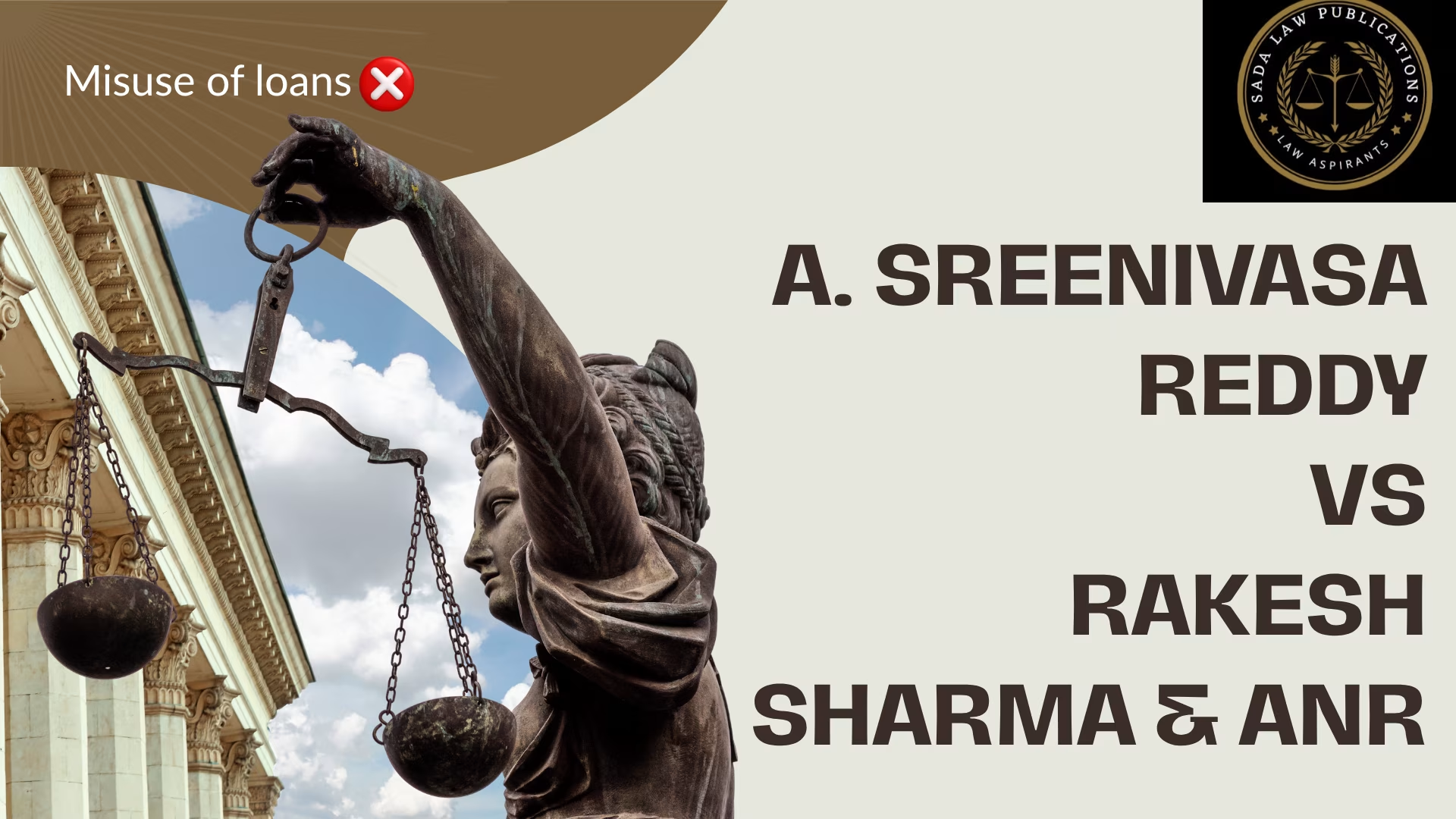A. Sreenivasa Reddy v. Rakesh Sharma & Anr. (2023)
- Nisha Kumari
- 14 October, 2025

Introduction
The case of A. Sreenivasa Reddy v. Rakesh Sharma & Anr. concerns the criminal prosecution of a senior State Bank of India (SBI) officer accused of sanctioning a large loan that was allegedly misused. The appellant challenged his prosecution under several provisions of the Indian Penal Code (IPC) and the Prevention of Corruption Act, 1988, arguing that it was invalid due to the absence of proper sanction under Section 197 of the Code of Criminal Procedure (CrPC) and Section 19 of the PC Act. The Supreme Court was called upon to determine whether statutory protections for public servants applied in this context and whether proceedings could continue despite a lack of valid sanction.
Background
A. Sreenivasa Reddy, Assistant General Manager of SBI, sanctioned a ₹22.50 crore loan to M/s Sven Genetech Ltd., which was allegedly diverted for non-sanctioned purposes, including repayment of debts and personal use. The Central Bureau of Investigation (CBI) registered an FIR under Sections 120B, 420, 468, and 471 of the IPC and Section 13(2) read with Section 13(1)(d) of the Prevention of Corruption Act, 1988.
Initially, the competent authority denied sanction for prosecution under the PC Act but later approved it. The High Court quashed the sanction under the PC Act while allowing prosecution under the IPC to proceed. The appellant, therefore, approached the Supreme Court seeking discharge from IPC offences as well, citing absence of valid sanction.
Key Developments
CBI filed an FIR under IPC and PC Act provisions.
The competent authority granted sanction for prosecution under the PC Act, later quashed by the High Court.
The Special Court discharged Reddy under the PC Act but retained IPC charges.
The appellant appealed to the Supreme Court challenging the continuation of IPC prosecution.
The Supreme Court examined the scope of Section 197 CrPC and Section 19 of the PC Act.
Issues
Whether the appellant, an officer of a nationalised bank, was entitled to protection under Section 197 of the CrPC, which mandates prior sanction before prosecuting certain public servants.
Whether the quashing of sanction under the Prevention of Corruption Act invalidates the prosecution under IPC sections based on the same facts.
Current Status / Judgment
The Supreme Court dismissed the appeal, holding that:
Officers of nationalised banks are not covered under Section 197 CrPC, as their removal does not require government sanction.
The quashing of sanction under the PC Act does not nullify IPC proceedings, since both statutes function independently.
The trial under IPC offences would continue.
Conclusion
The Supreme Court clarified that bank officials do not enjoy statutory protection under Section 197 CrPC and that invalidation of sanction under the Prevention of Corruption Act does not automatically affect proceedings under the IPC. The judgment reaffirmed the independence of procedural requirements under different statutes and upheld the continuation of criminal trial under IPC provisions against A. Sreenivasa Reddy.
Case Laws






